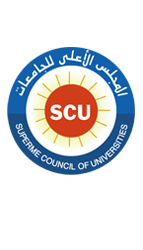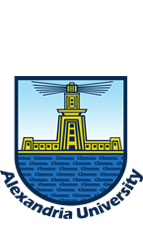ALEC's Partners

MHE
Ministry of Higher Education
The Ministry of Higher Education was established in November 9, 1961 to assume the responsibilities of higher education. The Ministry of Higher Education is responsible for proposing higher education policy, setting the plans, projects and programs necessary to implement this policy, putting the means that lead to spreading higher education in light of the current and future needs of the country, in addition to developing the means that lead to strengthen the relationship between universities, colleges and higher institutes, to reach the best public service to society, as well as supervising the Egyptian cultural bureaus and centers overseas, and the foreign cultural relations. It also supervises the Academy of the Arabic Language and the National Committee of UNESCO.

SCU
The Supreme Council of Universities
The Supreme Council of Universities (SCU), established in 1950 according to the Royal Decree NO (496) for the year 1950, plans the policy of the University Education and Scientific Research as well as to coordinate between the Egyptian governmental universities concerning curriculums, examinations, scientific degrees, equivalent foreign certificates, academic promotions and other matters. It is presided by the Minister of Higher Education and State for Scientific Research and directed by the Secretary- General, the universities' Presidents and 5 experienced members in the field of higher education and public affairs.

ICTP
Information and Communication Technology Project
During the period from 2005 to 2008, the Ministry of Higher Education has implemented and funded the Higher Education Enhancement project (HEEP) which consists of six major projects including Information and Communication Technology Project (ICTP), during this period ICTP has funded a number of projects at the supreme Council of universities and the Universities. The project works to raise the degree of utilization of information technology in the Egyptian universities and help in the reduction of the digital gap.

NELC
National E-learning Centre
National E-learning Center has been established in 2005, as one of the outcomes of the Information and Communication Technology Project. The National E-learning Center is subject to the supervision of the Higher Education Information Center, SCU. Its primary objective is to 'promote and support the development of e-learning in Egypt by improving the development of the learning content to the highest maturity level, to achieve strong presence both locally and regionally.

AlexU
Alexandria University
In 1938, the nucleus of the Alexandria University (formerly known as Farouk University) had its beginning in the form of two faculties of Fouad the First University. These were the faculties of Arts and Law. The faculty of Engineering was then established in 1941.
In the light of the need for developing more disciplines for higher learning and with a view towards meeting the need of the people of Alexandria, Alexandria University became a separate entity in August 1942 with four additional faculties: Science, Commerce, Medicine and Agriculture.
In 1952, it became "Alexandria University". Since then, the University witnessed growth and expansion in several fields: the number of Faculties and high institutes increased.
Know, Alexandria University has more than 20 faculties studying various types of social science and medical, engineering, sports, etc. It has other branches in Egypt outside the city of Alexandria. And it has been subject to the supervision of the Supreme Council of Universities.






